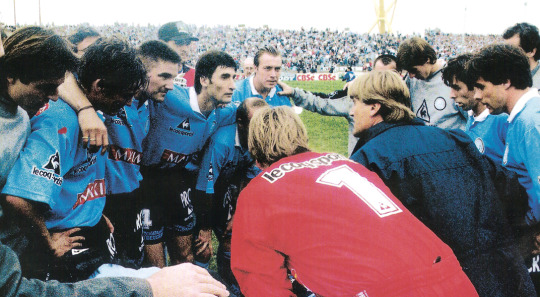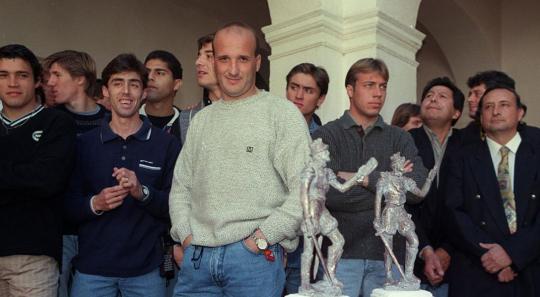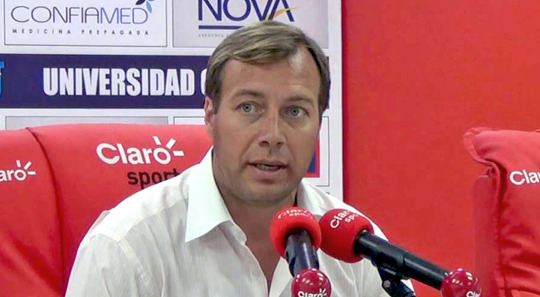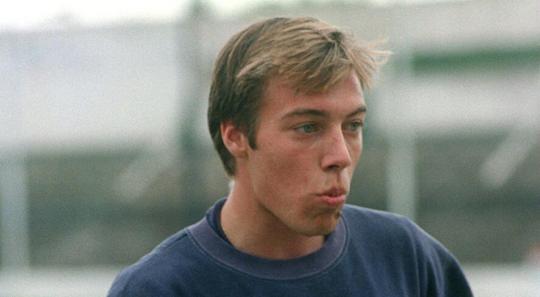#jorge lorenzo: lo que aprendí hasta los 30
Text
Let us not deceive ourselves, motorcycle racing has never been a team sport, like football or basketball. In fact, it has always been said that the first person you must beat is your teammate. If you surpass your teammate, your value within the team rises; if they outperform you, the opposite occurs, and your value diminishes. In this world, it is as straightforward as that.
During my last three years at Yamaha, my teammate was Valentino Rossi, who was already a veteran rider at the time. Each of us trained following our own methods. While he practiced dirt-track riding on the ranch he had built near Tavullia, I trained with my father in Gerno di Lesmo, a few kilometers from Monza. Yamaha had a factory and the headquarters of the MotoGP team there. They had a not-so-large asphalted area where they tested the bikes that came out of the factory. We took advantage of that space for our exercises.
It was the 2013 season, and Rossi, who had just returned to Yamaha after two very challenging years with Ducati, was struggling to regain competitiveness. He couldn't reach the podium and was always trailing behind me, Marquez, and Pedrosa. Naturally, Yamaha was interested in improving Rossi’s performance. At the end of that season, things began to happen. First, I learned that my physical trainer, Antonio Cascini (who had been recommended to me by Yamaha), had met with Rossi and his trainer in Tavullia. I will never know what he told them, but I imagine he must have explained how I trained. For that reason, among others, I decided to part ways with Antonio. Weeks later, I found out that Valentino had started training with bikes identical to the ones I used in Gerno (a Yamaha R6 and a Yamaha YZ85), also performing similar exercises. It was clear that someone at Yamaha had told him about our training routines. Whether it was a coincidence or not, Rossi began 2014 being much more competitive, and at the end of that year, after a challenging season for me, he managed to beat me, finishing as the runner-up in the world.
All the teams in the world championship have a single team manager, but at Yamaha, the situation was slightly different. Since the factory allowed Rossi to implement that famous “wall” in early 2008, they had no choice but to split the team manager role into two people. Until the end of 2009, Davide Brivio took care of Rossi’s side, while Emanuele Romagnoli handled mine. But their differences with Ramon Forcada from the very beginning were significant, and the team’s atmosphere was deteriorating, so they decided to move Romagnoli to the Tech 3 team as Cal Crutchlow’s chief mechanic and hired Wilco Zeelenberg for the 2010 season. In 2011, Rossi moved to Ducati and took Brivio with him as his manager, so Yamaha promoted Maio Meregalli to be the team manager, coming from the Superbikes team.
After the incident with Antonio, I decided to talk to Maio. I told him that I did not approve of the brief visit to Tavullia by my trainer or Rossi’s “new” training methods. I could accept them looking at our telemetry or even copying our bike settings before each race, but that was going too far. I also mentioned that, as I already had Wilco and he was more on Rossi’s side, I preferred that he stopped attending the technical meetings we held right after each practice session. I suspected that Meregalli was passing on everything to Rossi’s team. Although it was not personal, but simply a matter of conflicting interests, Maio did not take it very well, and from that point on, our relationship cooled. Nevertheless, I do not regret the decision because I believe I acted correctly in defense of my interests.
31 notes
·
View notes
Text
Qué es de la vida de… Diego Alarcón, exdefensor de Belgrano y de Talleres
Su cabellera rubia y su buena técnica llamaron la atención a mediados de los '90, cuando debutó en la zaga de Talleres con apenas 17 años. En conflicto con el club, fichó en San Lorenzo y, un par de años después, apareció jugando con la celeste de Belgrano, para sorpresa de muchos. Estuvo del lado de los celestes en la “final del siglo” y en el posterior ascenso pirata, que marcó su carrera. Pero ¿qué fue de la vida de Diego Alejandro Alarcón?
“Después de Belgrano jugué en muchos clubes, tanto del país (Independiente Rivadavia, Atlético de Rafaela, Gimnasia de Jujuy) como de Bolivia (Jorge Wilstermann, The Strongest) y de Ecuador (Barcelona, Manta, Emelec, Liga de Portoviejo), y hace más de 10 años soy director técnico”, le contó Alarcón a Mundo D desde el estricto confinamiento que cumple en Azogues, la ciudad ecuatoriana de 40 mil habitantes donde está radicado con su familia.
“Dirigí a Deportivo Asgues, en la Serie A de Ecuador; al Al Nasser de Arabia Saudita, junto con 'el Profesor' Jorge Habegger; fui director deportivo y también dirigí la reserva y el Sub 18 de Barcelona de Ecuador. Mi último club fue el Delfín Sporting Club de Manta, que es el campeón vigente del fútbol ecuatoriano. Siempre tuve como asistente a un cordobés: 'el Profe' Rafael Piscitello”, repasó.
La pandemia por el Covid-19 encontró a Alarcón, de 45 años, en uno de los países de Latinoamérica más afectados. “En Azogues estamos bien. Nos quedamos en casa respetando las indicaciones de las autoridades. Hay restricciones incluso para la circulación vehicular, que se determina por la terminación de la patente. Pero Ecuador en general es uno de los países más golpeados por el virus. Hubo una inconsciencia muy grande a nivel social. Se subestimaron mucho el toque de queda y la cuarentena. En todos los estratos sociales hubo mucha irresponsabilidad. No se tomaron los recaudos pertinentes y se propagó el virus de una manera fenomenal, sobre todo en Guayaquil”, explicó.
–¿Te sentís privilegiado por haber vestido las dos camisetas más importantes de Córdoba?
–Es un privilegio que me pone muy contento. Yo salí de las inferiores de Talleres. Desde chiquito me identifiqué con el club y, desde bebé, mi familia me puso esa camiseta. Jugué en todas las categorías menores de Talleres hasta que, a los 17 años, me llevaron al plantel profesional y debuté en primera. Hasta que, como muchos recordarán, tuve un conflicto con la dirigencia de aquel momento. Pasaba que a los chicos del club nos tiraban 250 pesos aunque fuéramos titulares, y en el mismo plantel había jugadores que ganaban más de 30 mil dólares mensuales. Así fue como, ante el interés de San Lorenzo, no firmé contrato y me fui como jugador libre.
–¿Y cómo fue que llegaste a Belgrano?
–Después de San Lorenzo me tocó ir a Francia. Cuando volví, vino “el Coco” Basile como entrenador y me mandaron a préstamo a Belgrano. Y te puedo decir que en Belgrano tuve uno de los picos más altos de mi carrera. Fueron tres años muy buenos, en los que me brindé por completo y fui muy feliz. Siempre estuve muy orgulloso de esa hinchada y creo que la presión que era cada partido me potenció. Me identifiqué mucho pese a que la historia de los marcadores centrales del club era de jugadores recios, duros y temperamentales. Pero creo que yo pude imponer mi propio estilo y la gente lo aceptó. El final de mi vínculo con Belgrano llegó con la quiebra del club, en el año 2000. Pero, si era por mí, me quedaba toda la vida. Si Belgrano hubiese sido en esa época lo que es hoy, me hubiera gustado seguir hasta los 35 años en el club.
–¿Qué recuerdo tenés de “la final del siglo”?
–La segunda final fue espectacular. Me acuerdo de que La Voz del Interior me puso un “9” en ese partido. Es que, en la presión, yo potenciaba mis condiciones. Para mí era un honor que toda esa gente fuera a alentarnos. Cuando lo expulsan al “Loco” Testa, les dije a Rezza (Ricardo, el DT), a Cosme (Zaccanti) y a la “Tota” (Medina) que me dejaran como único central; que no entrara otro defensor porque teníamos que plantear el partido en el medio, ya que íbamos perdiendo 1 a 0. Talleres nos llegaba, pero nosotros fuimos heroicos. Ellos tenían un equipo mucho más dúctil técnicamente, pero les faltaba lo que a nosotros nos sobraba: muchísima garra y unión. Teníamos un grupo excelente, muy unido. La remontada fue épica. Lo perdimos en los penales, pero lo que hicimos en esos 120 minutos fue maravilloso. Imaginate que la gente, después de perder una final con tu clásico rival, nos ovacionó y se fue muy tranquila… Lo recuerdo y me conmueve mucho… Es raro: yo nací y crecí en Talleres, pero amo mucho a Belgrano.
En ese momento, la voz de Diego Alarcón se quiebra y la comunicación entra en un sorpresivo impasse durante varios segundos. “Perdoname, me emocioné”, avisa.
–¿Cómo fueron las horas posteriores a la final y cómo pudieron recuperarse?
–Cuando terminó el partido, que fue un domingo, nos fuimos a concentrar a Ascochinga, porque el miércoles jugábamos la semifinal del reducido con Banfield, en Buenos Aires. Aquella noche fue muy dolorosa. Yo lloré muchísimo y el doctor (Julio) Ferreyra me dio una pastilla porque no podía dormir. Pero al otro día, en el almuerzo, me quedé conversando con “Chiche” Sosa y con “el Luifa” (Artime) y coincidimos en que teníamos todo para subir, en lo bien que habíamos jugado… “¿Quién te puede ganar con semejantes huevos y fútbol?”, nos planteamos. En vez de caernos, nos agrandamos. Empatamos allá con Banfield y acá les ganamos muy claramente. En las finales con Aldosivi empatamos allá, con el gol de Zaccanti, y después los pasamos por encima en un Chateau repleto. Aquel ascenso es un recuerdo imborrable de mi carrera.
–¿Te marcó Ricardo Rezza como DT?
–De Ricardo me quedaron la ética, la moral, la educación, el respeto al jugador. Una persona muy íntegra; admirable en el manejo del grupo. En cuanto a la ideología futbolística, me marcó más Jorge Ginarte, un técnico muy ofensivo. En Talleres lo tuve a Roberto Saporiti. Y en San Lorenzo, al “Bambino” Veira. Con “el Profesor” Habegger fui campeón en Bolivia y después me llevó a Arabia Saudita. De él también aprendí mucho. Es un metódico, un estudioso. Pero, ante todo, trato de tener un estilo personal. Soy ofensivo, busco que los equipos míos tengan un fútbol muy prolijo y salgan jugando desde abajo. En ese sentido, admiro a (Ricardo) La Volpe y a (Marcelo) Bielsa.
–¿Te gustaría volver a trabajar en el país?
–Es un anhelo. Lo he hablado con mi familia. Es muy probable que el próximo año nos radiquemos nuevamente en Córdoba. Durante estos últimos años, la Argentina atravesó muchos problemas económicos y era muy difícil regresar al país en esas condiciones, sobre todo porque tengo hijos pequeños. Pero, con toda esta cuestión de la pandemia, todo se va a emparejar para mal y creo que es momento de estar cerca de mi familia. Extraño muchísimo y sueño con irme a vivir allá.

diego2_1588435245.jpg

diego4_1588435245.jpg

diego3_1588435245.jpg

En conferencia de prensa, como entrenador en Ecuador. El exdefensor de Talleres y de Belgrano quiere retornar a la Argentina.

diego1_1588435245.jpg

La mirada y el oído atentos a las indicaciones de Ricardo Rezza. Fue antes del alargue en la “final del siglo”. A Diego le atajaron su penal, pero fue figura del partido.

diego3_1588435245.jpg

diego4_1588435245.jpg
source https://mundod.lavoz.com.ar/futbol/que-es-de-la-vida-de-diego-alarcon-exdefensor-de-belgrano-y-de-talleres
0 notes
Text
El zasca de Jorge Lorenzo a Pablo Motos en ‘El Hormiguero’
Jorge Lorenzo ha acudido este jueves a ‘El hormiguero’ para presentar su último libro, ‘Lo que aprendí hasta los 30’. Sin embargo, el cinco veces campeón del mundo no ha podido eludir hablar de la última polémica entre Márquez y Rossi en el GP...
Leer noticia https://ift.tt/2EHVzlG
0 notes
Text
#9: Lo que aprendí hasta los 30: Mis secretos para alcanzar el éxito en todo lo que te propongas (COLECCION ALIENTA)
Lo que aprendí hasta los 30: Mis secretos para alcanzar el éxito en todo lo que te propongas (COLECCION ALIENTA) Jorge Lorenzo Guerrero (Autor) Cómpralo nuevo: EUR 14,95 EUR 14,20 12 de 2ª mano y nuevo desde EUR 14,20 (Visita la lista Los más vendidos en Libros para ver información precisa sobre la clasificación actual de este producto.) https://www.amazon.es/que-aprend%C3%AD-hasta-los-propongas/dp/841692869X/ref=pd_zg_rss_ts_b_books_9
0 notes
Text
If you have an interest in football, you may have had the opportunity to attend a live match between FC Barcelona and Real Madrid. If so, you might have noticed how the local fans, of either team, often whistle and even insult the opposing team every time they touch the ball, and with even more fervor if it's the star player of the rival team (currently Ronaldo or Messi). If they consider that player to be arrogant or if they have previously played for the other team (as was the case with Luis Figo), the boos are even more intense.
If you pause to think, you will see that this attitude directly stems from fear. Fear that the rival team may be better and win the game. Fear that Messi or Ronaldo might have a standout day and tip the match against our team. “Remember that unjust criticism is often a hidden compliment. No one kicks a dead dog!” as Dale Carnegie once said. And it’s true: people don’t fear the weak; they simply ignore them. That's why the level of anger or hatred decreases as the level of the opponent decreases, unless there is a historical rivalry, as is the case with Atlético and Real Madrid, or Espanyol and Barça.
In my case, I have never lacked haters. First, because I have always been competing for top positions. Second, because I have a strong character and have always said what I think, not what the fans or my rivals want to hear. In that sense, I am not as well-liked by the majority as other more reserved riders.
Unlike countries like the United States, where those who confidently display their success are applauded, in Spain, athletes who demonstrate great humility, who are part of a united family and stay out of trouble, both in competition and in their private lives, are more favorably viewed. In my case, especially at the beginning of my career, I behaved in precisely the opposite way that an "ideal" athlete should, so my detractors had plenty of reasons to channel their hatred (or fear) toward me.
“Casually,” most of the criticism came from some fans of my rivals. There are fans who simply support their rider, but others need to criticize or jeer at their rivals. It happened with Pedrosa when we were both in the 250cc, and the Spanish public divided into “Pedrosistas” and “Lorenzistas”. It happened with Márquez when he entered MotoGP, and I openly commented that he was too aggressive in overtaking. And since my debut in MotoGP, I have always faced it from the most hardcore Rossi fans, who since 2008 saw me as a threat to his reign, both in the MotoGP championship and in the Yamaha team.
After winning the 2015 world championship, these criticisms, insults, and jeers have become even more common, both at the world circuit and on social media. In Márquez’s case, who also began experiencing it that year due to the incident between Rossi and him, it may have been a greater emotional burden since he had always carefully maintained his image as the “ideal” athlete. Moreover, they were “friends”, and Rossi’s fans respected him and considered him, due to talent and age difference, the natural heir. All of that changed when Valentino started to “smell” his tenth world championship. To achieve it, clashes on the track between the two became inevitable. The situation became even more tense when in the press conference of the Malaysian Grand Prix, Rossi accused Márquez of deliberately helping me win the championship. From that point on, the two of us became enemies for the millions of 46 fans. In my case, because we always had a tense relationship and I was the rival who could snatch his long-awaited tenth world title; in Márquez’s case, supposedly for conspiring in my favor.
If you pay attention, the word “detractor” resembles “destructor”. It is related to destroying, eliminating, annihilating. How do the most radical fans attempt to “eliminate”, or at least weaken, the rival? By trying to get into their heads. By demoralizing them, sending negative messages like “you’re very bad,” “you have no personality,” “you’re not even in the same league as my rider,” etc.
Lately, when I check my Twitter or Instagram, in the comments on my photos, I see messages like these: “loser,” “go home,” “you can't tame the beast,” “take the money and run,” “retire, you're making a fool of yourself,” etc. After reading them, I have sometimes checked the recipient’s username. Curiously, the nicknames of these individuals always end with the same number.
31 notes
·
View notes